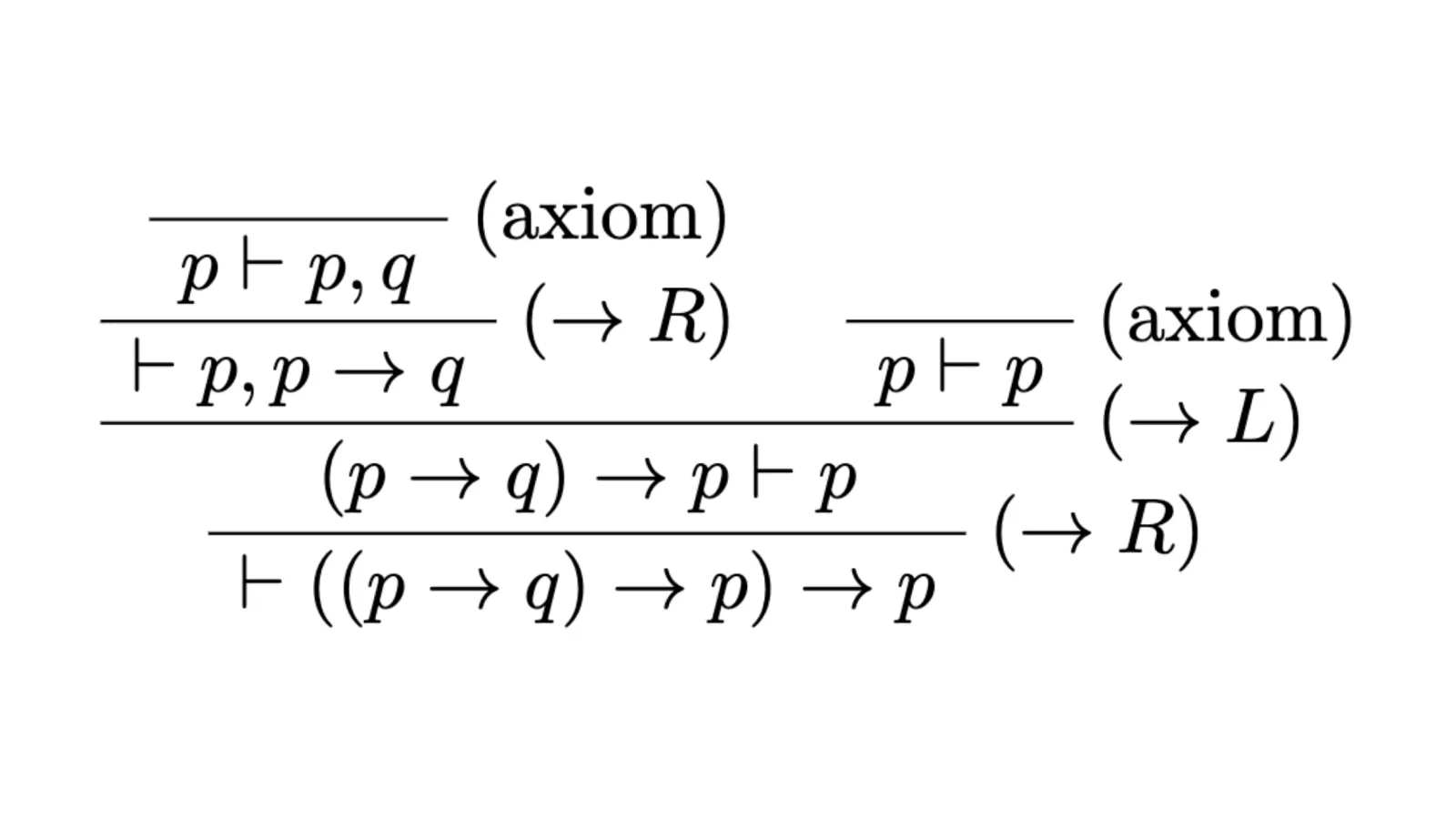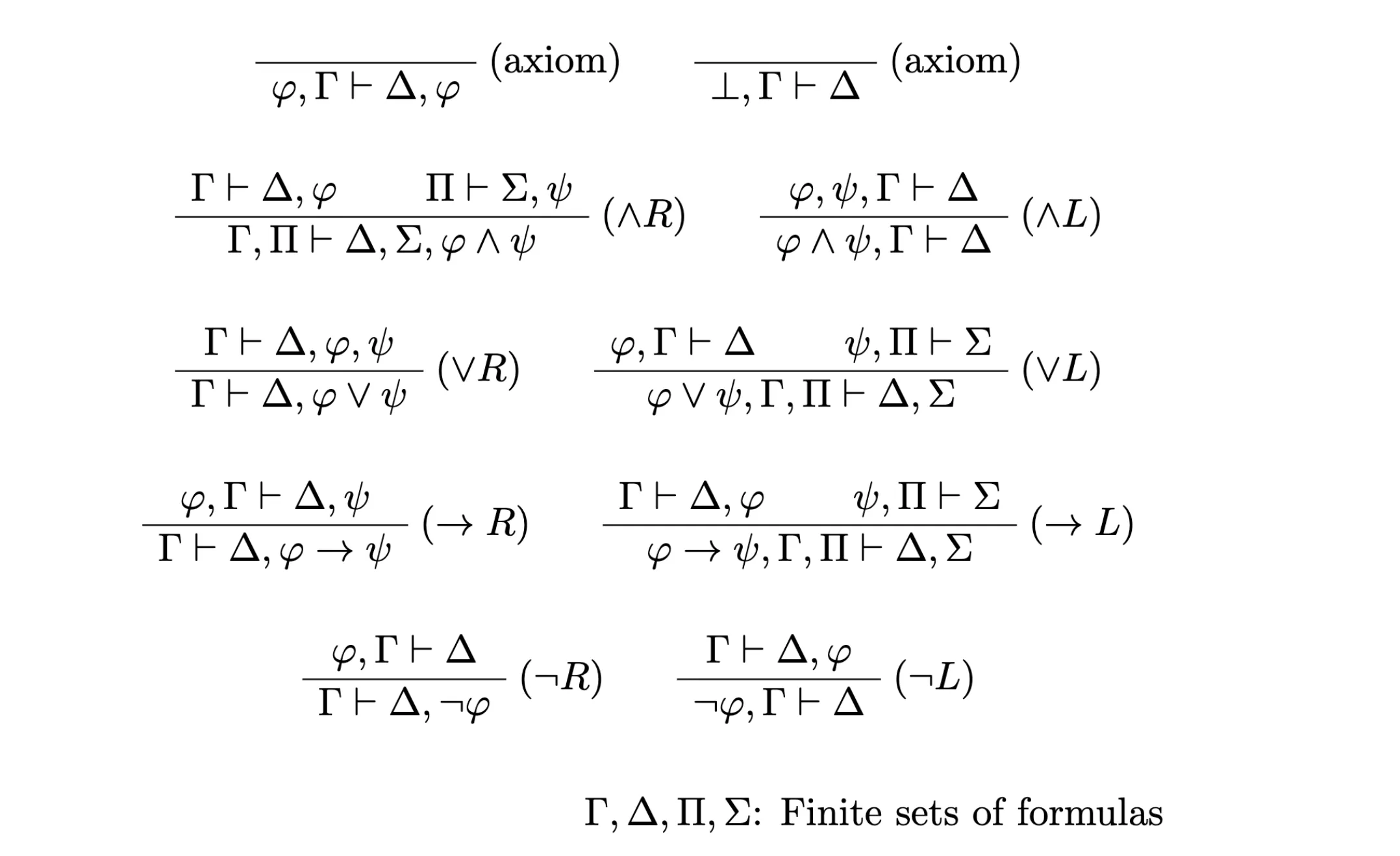LkProver
Automatically generates LaTeX snippets of derivation trees from LK sequents

LkProver converts LK sequents into bussproofs commands.
Contents
Usage
Dune is required to run this tool.
dune exec bin/main.exe '|- ((p -> q) -> p) -> p'The above command will output the following LaTeX snippet:
\begin{prooftree}
\AxiomC{}
\RightLabel{(axiom)}
\UnaryInfC{$p \vdash p, q$}
\RightLabel{($\rightarrow R$)}
\UnaryInfC{$\vdash p, p \rightarrow q$}
\AxiomC{}
\RightLabel{(axiom)}
\UnaryInfC{$p \vdash p$}
\RightLabel{($\rightarrow L$)}
\BinaryInfC{$(p \rightarrow q) \rightarrow p \vdash p$}
\RightLabel{($\rightarrow R$)}
\UnaryInfC{$\vdash ((p \rightarrow q) \rightarrow p) \rightarrow p$}
\end{prooftree}Input format
Here is the input syntax of LkProver. The precedence of connectives follows the usual one.
<sequent> ::= <expr> "⊢" <expr>
| <expr> "|-" <expr>
| <expr> "⇒" <expr>
| <expr> "=>" <expr>
<expr> ::= <var>
| "⊥" | "_|_"
| "¬" <expr> | "~" <expr> | "!" <expr>
| <expr> "∧" <expr> | <expr> "/\" <expr> | <expr> "^" <expr> | <expr> "&" <expr>
| <expr> "∨" <expr> | <expr> "\/" <expr> | <expr> "|" <expr>
| <expr> "→" <expr> | <expr> "->" <expr>
| "(" <expr> ")"
<var> ::= [A-Za-z][A-Za-z0-9_]*Inference Rules
LkProver adopts the following inference rules (what I learned in a logic lecture):

Implementaion
LkProver is implemented in OCaml. The implementation is very straightforward, just following the inference rules above.
I used Menhir and sedlex for parsing and lexing input sequents.
My experience with sedlex was great because lexer specifications are embedded in regular OCaml source codes, so we can still get the help of OCaml Language Server, unlike Menhir which is written in separate .mly files.
If you are interested, please check out the repository.